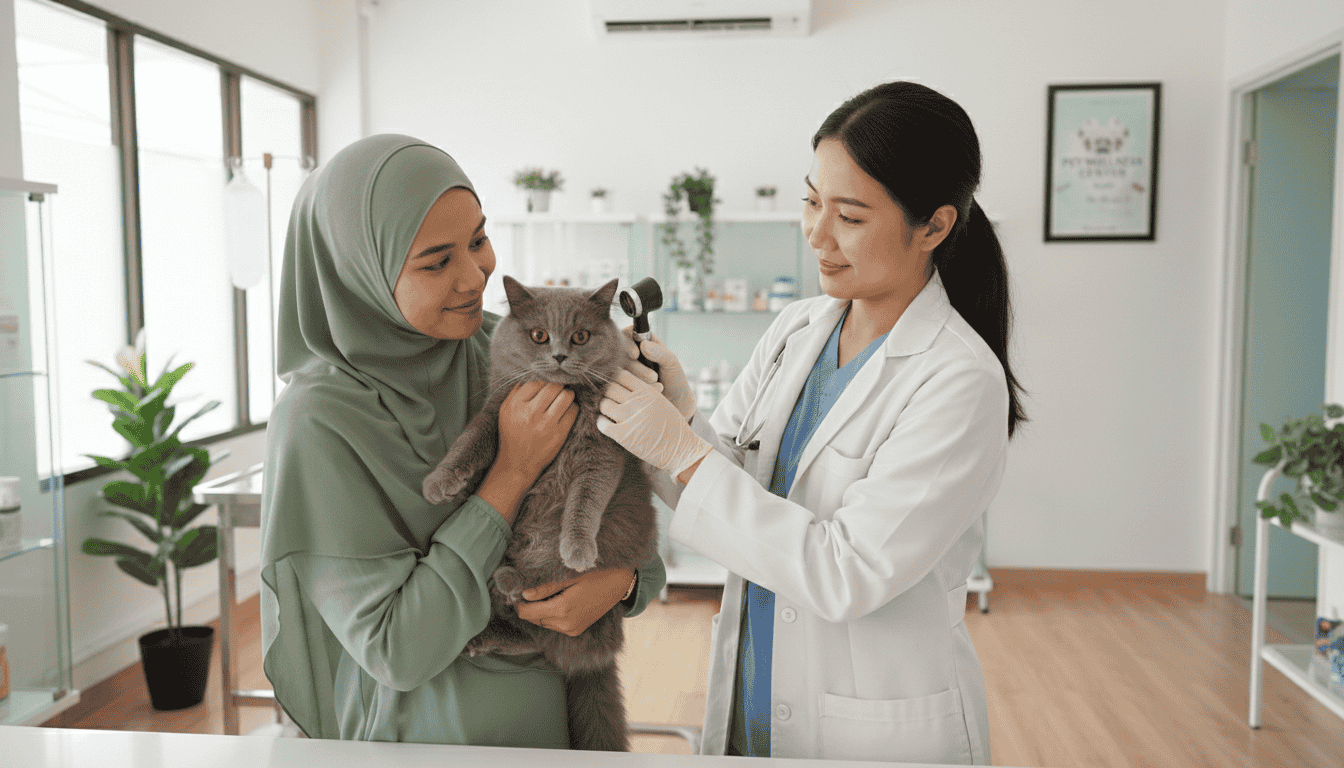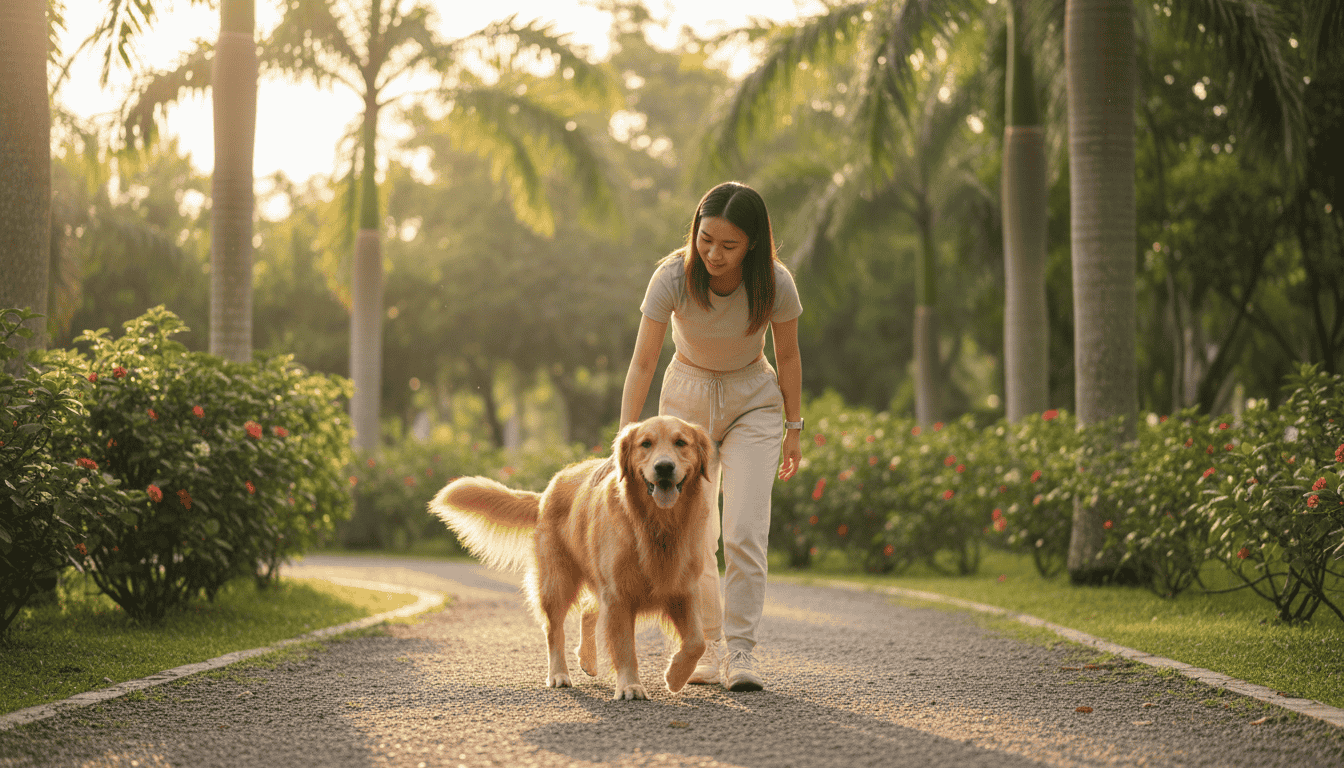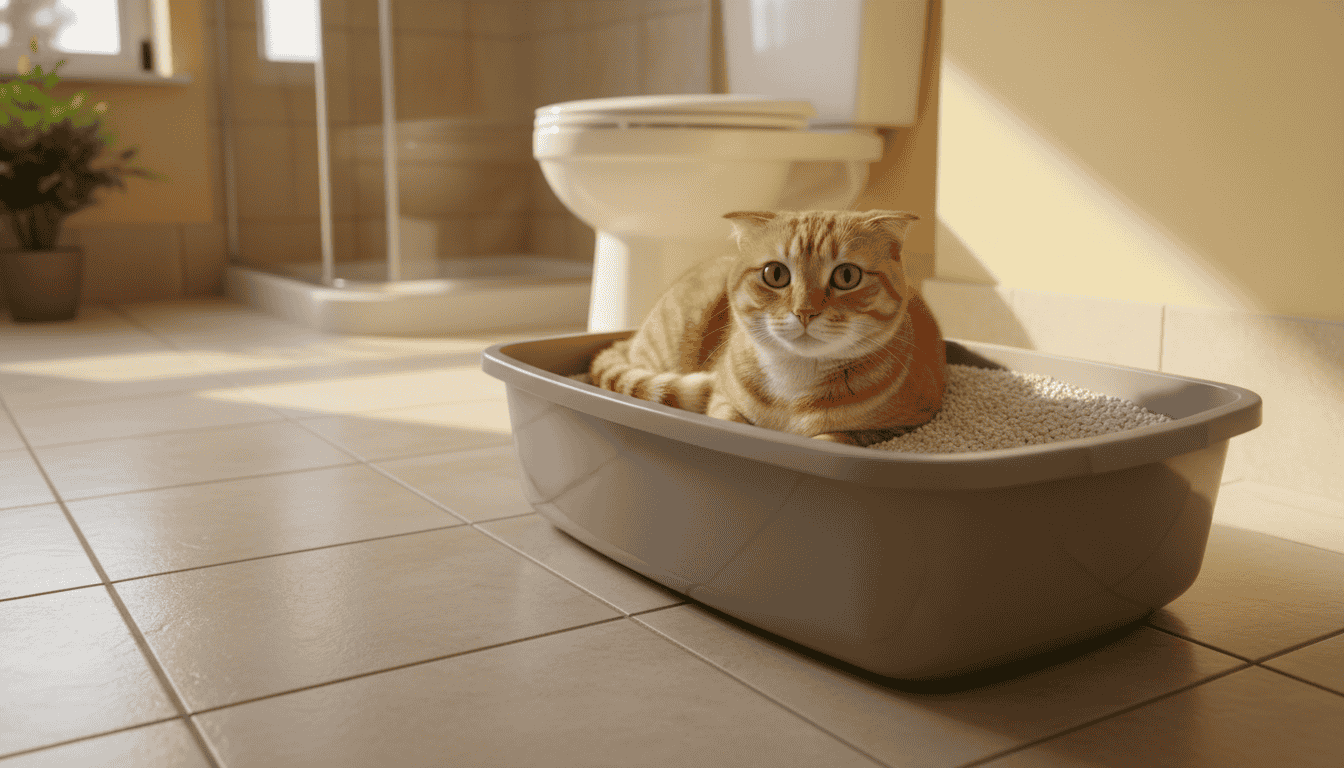It's easy to confuse a Pomeranian for a stuffed toy because of just how fluffy and adorable they look. Despite their petite bodies, Poms have a burst of personality crammed in them, and they're always a joy to have around you.
There are many types of Pomeranian breeds, but this straightforward Guide will equip you with everything you need to know about pom puppies. Let's learn how to care for a Pomeranian puppy and keep them happy and healthy!
Where to Buy a Pomeranian in Malaysia
If you're on the lookout for Pomeranian puppies on sale, you can check out your local pet shop or online websites and social media sites like Facebook.
Some online websites you may wish to take a look at include the following:-
- Pomeranian Puppy For Sale Malaysia
- Pomeranian Malaysia Online Store
- Chitku's Pet Listing
- My Pet's Library Listing
It's a little tricky to find a Pomeranian for adoption in Malaysia, but you can call up your nearby pet shelter to find out.
How to train a Pomeranian
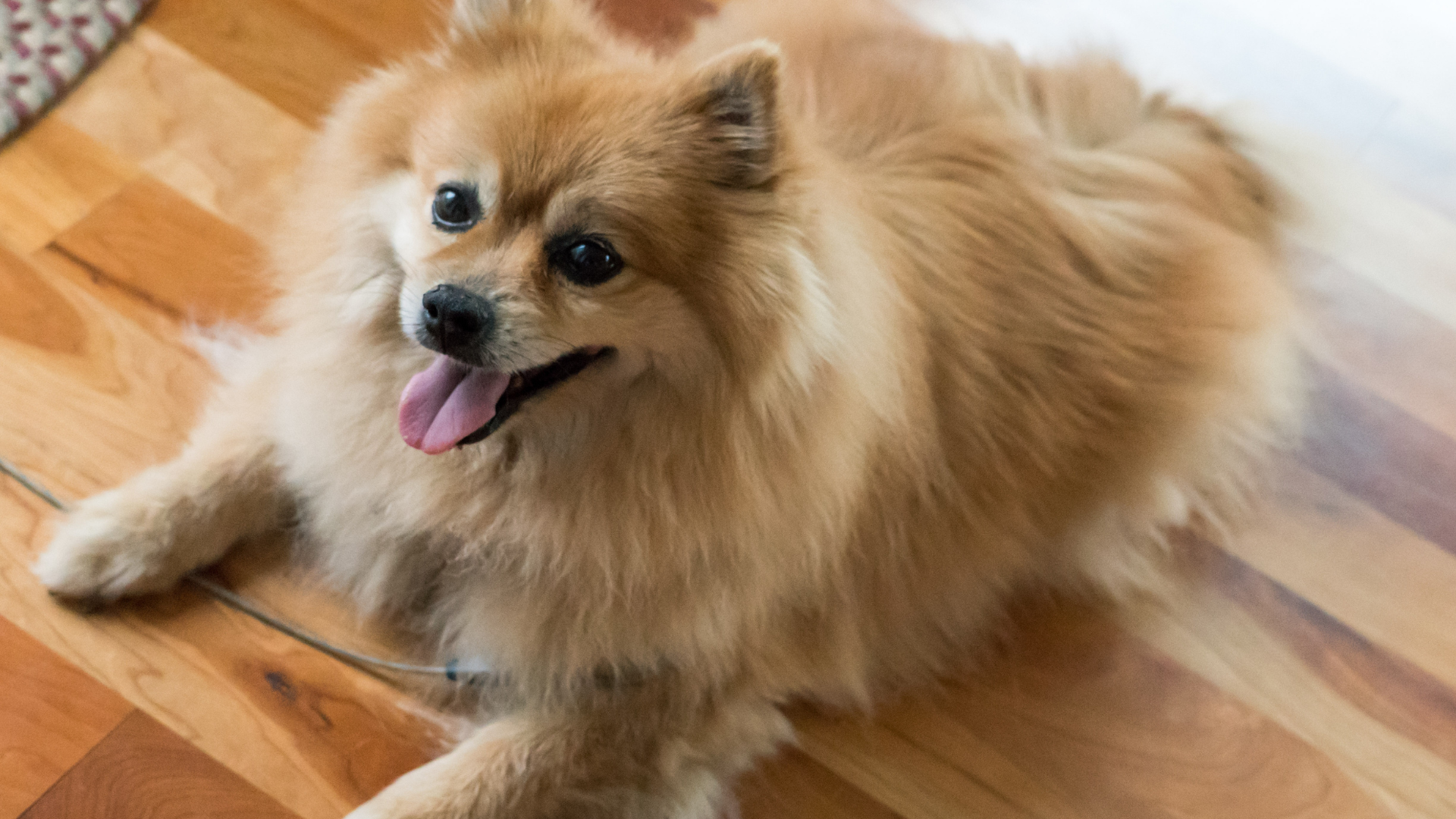
Like any other dog, Poms must be appropriately trained to learn obedience and good manners. It's generally recommended to start training Poms that are eight weeks old and above.
What's more interesting is that senior Pomeranian dogs also have a remarkable learning capacity. That being so, it's safe to say Poms are life-long learners, and it's never too late to start training dogs.
Potty training
Potty training is essential because it teaches your pup to be independent. The key factor to potty training is consistency and repetition. Therefore, it's recommended that you place your Pom's litter box or pee pads in the same place every day. Find a designated "potty space" that's accessible and obvious to your pup.
When you notice your pup sniffing or pacing around (a sign your puppy needs to pee), immediately move it to the "potty space". Make use of verbal cues like "go potty" in a calm voice tone. Once your pup has peed in the designated spot, reward it with small treats and praises.
Basic commands
Teaching basic commands such as "sit down," "stay," or "catch" is both fun and challenging. Pomeranians are great learners, and they love to tackle new commands with enthusiasm. On that note, poms are more likely to listen and respond better to those it's fond of and familiar with.
That being so, you should aim to bond with your Pom before teaching it basic commands. Slowly expose your pup to yourself and your family members. This allows your puppy to familiarize itself with everyone's scent and voice.
Once your pup starts feeling comfortable, it'll have the eagerness to perform new tasks or tricks you instruct. Your pup will also not feel overwhelmed when required to do a task.
No barking
Pomeranians are often associated with loud barking noises. In most cases, Poms bark as a means of self-defence or to show excitement. Excessive barking can get troublesome, and training them to stop barking on demand is necessary.
Firstly, you should assure your Pom that it is in a safe and secure space. Make it feel comfortable in your home. You should also find out if there's any trigger that causes your pup to bark and remove it if possible.
Next, when your Pom starts baying, clap your hands, or say a loud "No!" The point is to make your dog stop and look at you. However, if you find your Pom continues barking without any reason, take away his favourite dog toy momentarily. This will teach them not to become overly territorial.
Do Pomeranians shed hair?
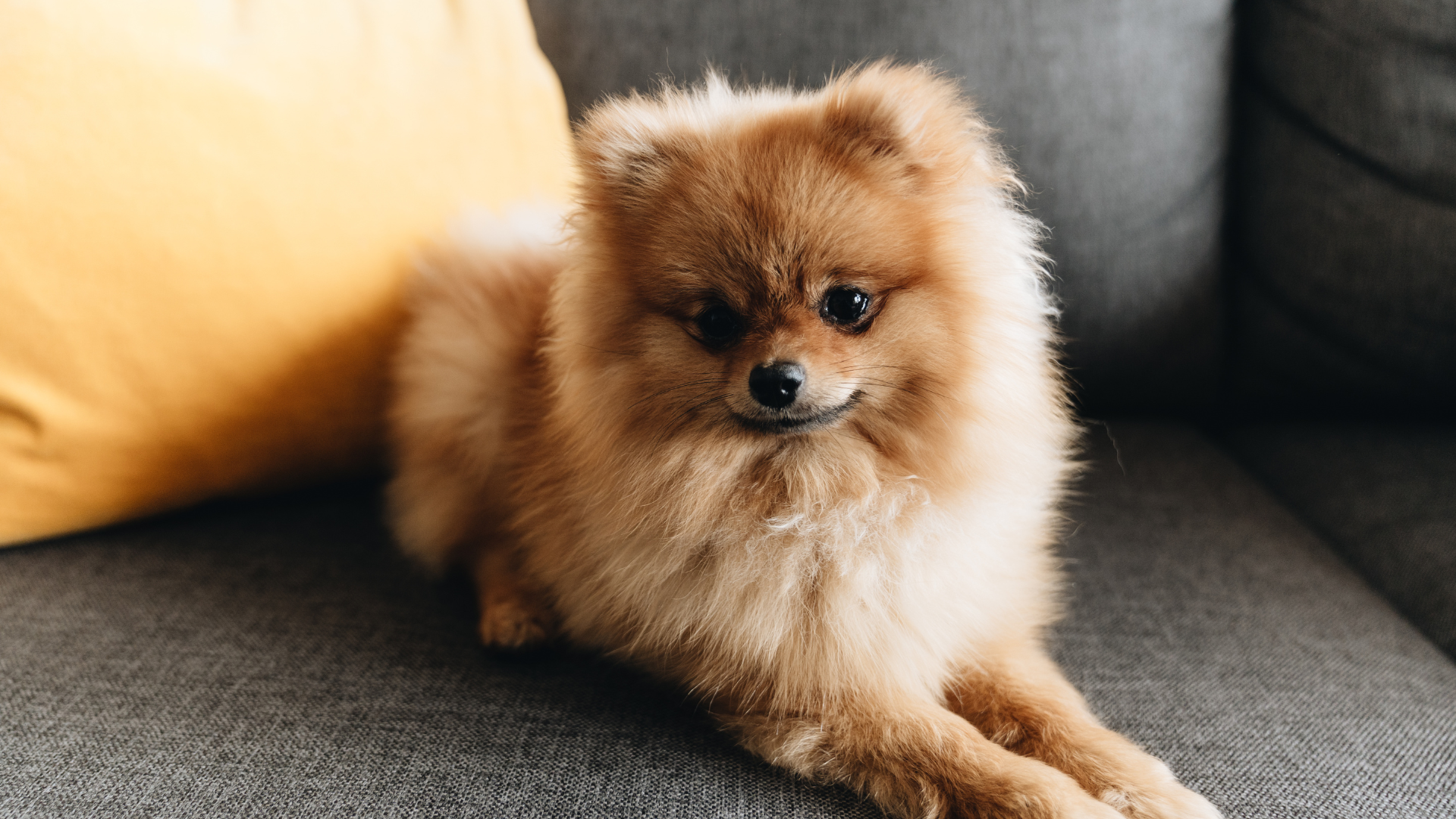
Yes and no. Pomeranians are said to be "seasonal shedders," meaning they shed more at certain seasons than others.
Generally, they start shedding when they reach 4 to 6 months of age. This is because their baby coat is being replaced by an adult double coat, whereby the outer layer has long furry hairs while the inner coat layer is dense and thick. This process will take approximately five months to complete.
Followingly, Pomeranians will shed during summer or whenever there's a sudden change in weather. Increasing the frequency of brushing your Pom during these times would be best to avoid your living spaces being scattered with pom fur.
How to detangle Pomeranian hair?
Pomeranians have a luscious and fluffy coat, making it easy to tangle if left unbrushed for a prolonged time. Here's a simple step-by-step method to untangle your Pom's hair.
- Take a section of your Pomeranian's fur and spray some dog conditioner to dampen the hair. This will make it easier to untangle.
- Next, start gently brushing the damp section with a suitable brush. Remove any loose strands after each stroke.
- Continue brushing the same section until there are no tangles.
- Then, separate the untangle section and take another portion of the fur. Repeat the same process until you've untangled all of your Pom's hair.
- Finally, bathe and blow-dry your Pomeranian after completely untangling its hair. Bathing your pup before untangling its hair will make the tangles worse.
Ensure your pup is not in pain or discomfort when untangling its hair. Practice brushing your Pom's hair regularly to avoid the future occurrence of severe tangling.
How often should a Pomeranian be bathed?
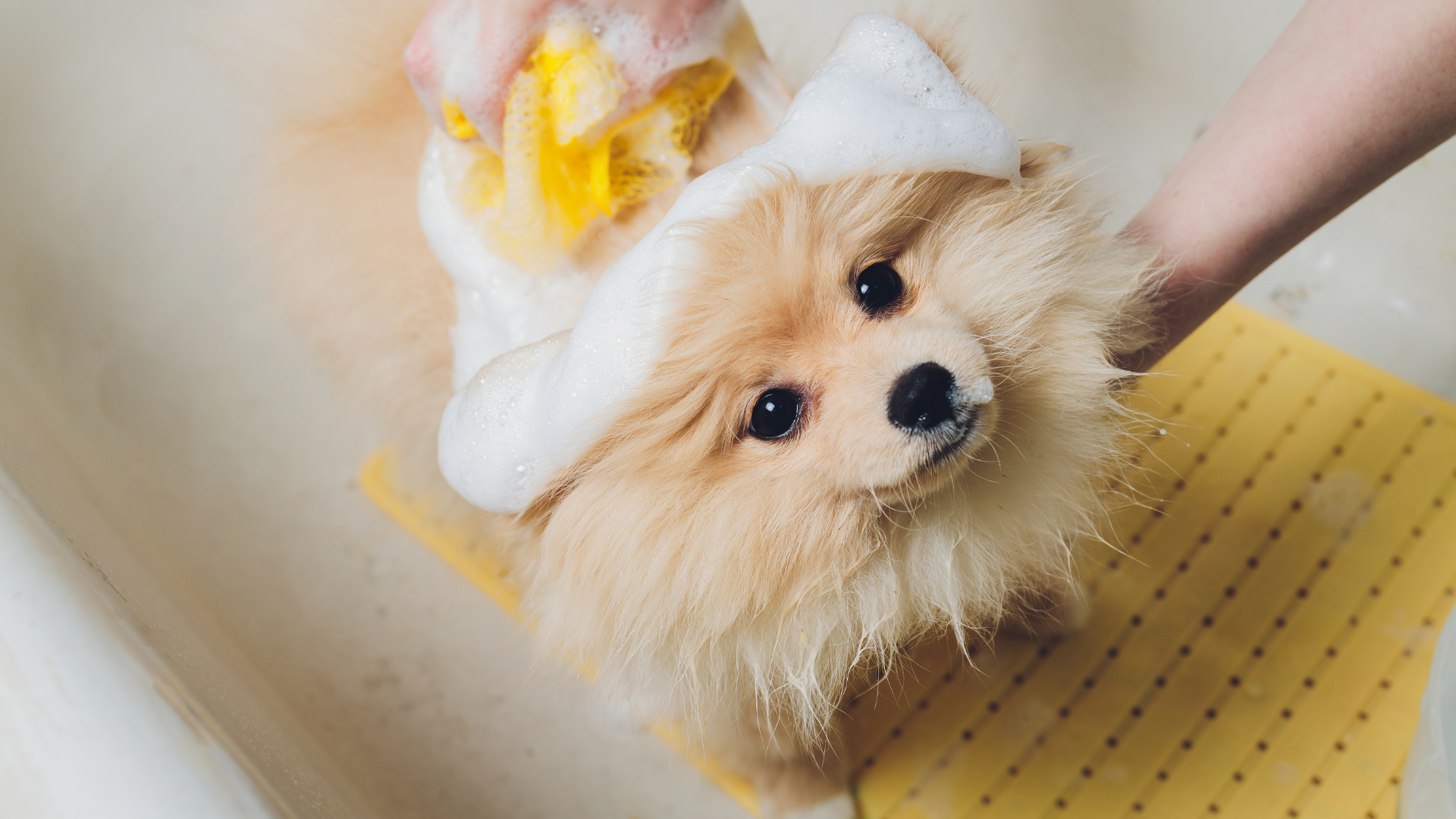
Proper grooming sets the foundation for your dog's coat and skin health. It's recommended that you bathe your pomeranian dog every three weeks or at least once a month. This will help avoid your Pom's coat from becoming tangled or matted. However, do note that frequently bathing your pup will strip away its natural body oils, causing dry skin issues.
Are Pomeranians hypoallergenic?
Here's a busted myth: all breeds of dogs shed to some degree and could cause allergy in humans. No dog is 100% hypoallergenic. Nevertheless, the American Kennel Club has published a list of the best "hypoallergenic" dogs (dogs with the least risk of triggering allergies).
Unfortunately, Pomeranians are not included in the list. Henceforth, if you're concerned about allergies, it's best for you to spend some time with Pomeranians before deciding to bring one home.
If you already have a Pom at home, you can routinely groom it to minimize the risk of allergy. When properly groomed, more of your Pom's fur or coat will end up in the brush—not in your common living spaces, triggering allergic reactions.
Can Pomeranians eat raw meat?
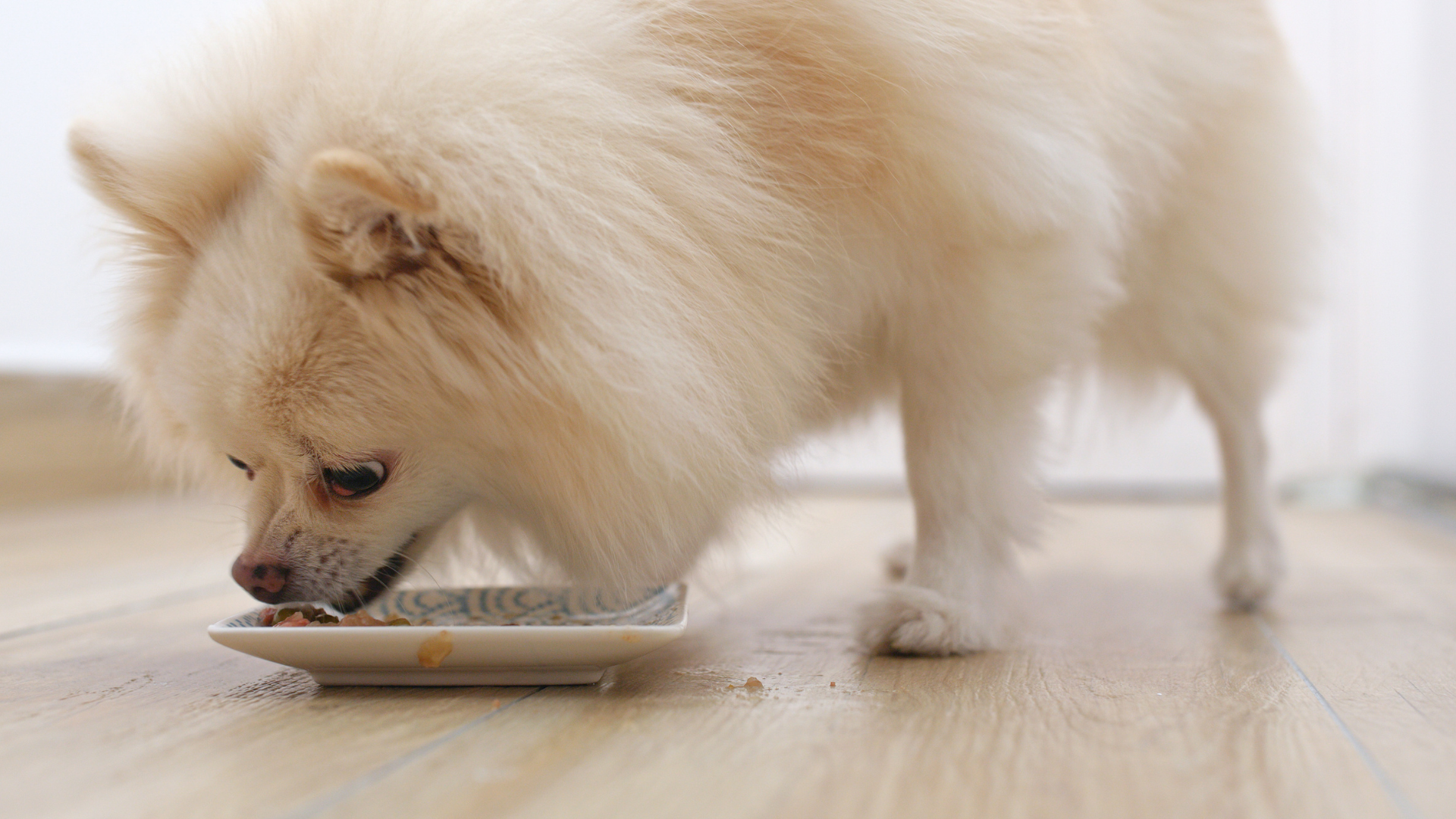
No. It's not recommended for any dogs to eat raw meat. This is because raw and uncooked meat is more likely to contain harmful bacteria (i.e. salmonella or E.coli) and could cause serious bacterial infections after ingestion.
Foodborne illnesses are more common in dogs than they're in humans. That being so, it's best to feed your Poms cooked and high-quality dog foods.
How many years do Pomeranians live?
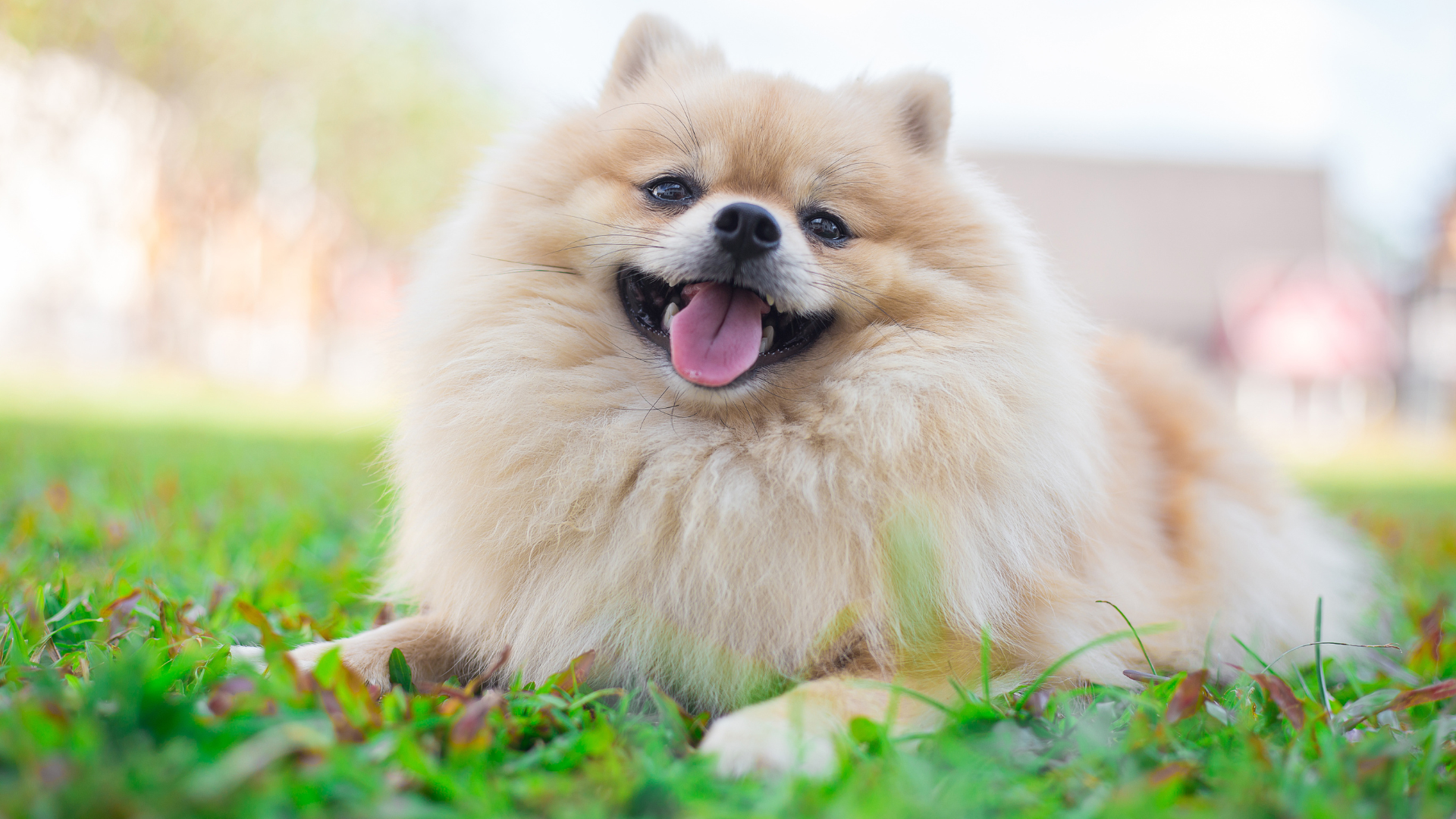
The lifespan of dogs depends on many factors, including lifestyle, genetic predisposition, and exposed environment. That said, both regular and teacup Pomeranians have an average life expectancy of 12 to 16 years.
Pomeranians are generally healthy dogs, but similar to all other dog breeds, they carry their own susceptibility to certain health conditions. The three most common health conditions in Pomeranians are patella luxation, hypothyroidism, and coat loss.
Patella luxation
Patella luxation concerns most small-sized dogs such as Pomeranians, Shih Tzus, or Pugs. Patella, also known as the kneecap, is a small bone under the thigh muscles' tendon. Patella luxation describes a health condition where the kneecaps get dislocated and slip off the tendons.
Pomeranians with patella luxation often limp in an attempt to reassign the kneecap to its place. However, this is rarely successful and will only cause pain and worsen over time.
You should check your Pom's patella yearly to spot any signs of patella luxation early. Furbabies diagnosed with patella luxation almost always require knee surgery to treat the condition.
Hypothyroidism
Thyroid hormones, produced in the thyroid glands, play a vital role in metabolism and energy production. Hypothyroidism in poms is an abnormal metabolic state contributing to multiple systemic changes.
The hallmark symptoms of hypothyroidism in dogs include constipation, low energy, unexplained weight gain, and skin discolouration. Untreated hypothyroidism will significantly shorten your dog's lifespan and increase its risk of developing other health conditions (i.e., high blood cholesterol or weakened immune system).
It's essential for your pup to get routine blood tests to detect hypothyroidism or any other abnormalities.
Coat loss
Coat loss (or severe hair loss syndrome) is a debilitating condition, causing your Pom's coat to thin over time. This occurs prominently at the back and bottom area. In most cases, hair loss in poms is attributable to an underlying issue such as skin parasite, infection, or even poor coat health. That being so, it's paramount to have your pup's coat examined professionally by a vet and treated promptly if necessary.
Prevention is always better than cure. So always keep an eye out for your Pom's health and strive to do everything in your power to keep your pup fit as a fig. Seek medical care if you spot anything unusual.
Conclusion
Pomeranians are adorable companions that are worth all our time and attention. They're active, loyal, and intelligent dogs capable of getting along very well with humans.
While it's a joy to have Pomeranians around, it's also essential to remember that they're an added responsibility to our life. As pet parents, there's more than the best we'd want for our furbabies.
Oyen Pet Insurance gives you a chance to provide the best healthcare for your dog. Get in touch with us today to discuss the best plans for your furkid!












